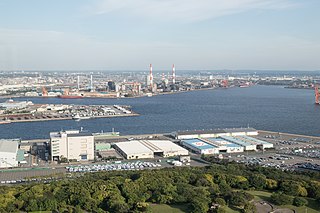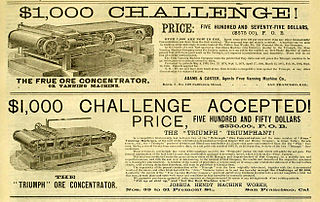
The economy of Brunei, a small and wealthy country, is a mixture of foreign and domestic entrepreneurship, government regulation and welfare measures, and village traditions. It is almost entirely supported by exports of crude oil and natural gas, with revenues from the petroleum sector accounting for over half of GDP. Per capita GDP is high, and substantial income from overseas investment supplements income from domestic production. The government provides for all medical services and subsidizes food and housing. The government has shown progress in its basic policy of diversifying the economy away from oil and gas. Brunei's leaders are concerned that steadily increased integration in the world economy will undermine internal social cohesion although it has taken steps to become a more prominent player by serving as chairman for the 2000 APEC forum. Growth in 1999 was estimated at 2.5% due to higher oil prices in the second half.

The economy of New Zealand is a highly developed free-market economy. It is the 52nd-largest national economy in the world when measured by nominal gross domestic product (GDP) and the 62nd-largest in the world when measured by purchasing power parity (PPP). New Zealand has a large GDP for its population of 5 million, and sources of revenue are spread throughout the large island nation. The country has one of the most globalised economies and depends greatly on international trade, mainly with Australia, China, the European Union, Japan, Singapore, South Korea, and the United States. New Zealand's 1983 Closer Economic Relations agreement with Australia means that the economy aligns closely with that of Australia.
A grey market or dark market is the trade of a commodity through distribution channels that are not authorized by the original manufacturer or trade mark proprietor. Grey market products are products traded outside the authorized manufacturer's channel.

Local purchasing is a preference to buy locally produced goods and services rather than those produced farther away. It is very often abbreviated as a positive goal, "buy local" or "buy locally', that parallels the phrase "think globally, act locally", common in green politics.
Ethical consumerism is a type of consumer activism based on the concept of dollar voting. People practice it by buying ethically made products that support small-scale manufacturers or local artisans and protect animals and the environment, while boycotting products that exploit children as workers, are tested on animals, or damage the environment.

Non-tariff barriers to trade are trade barriers that restrict imports or exports of goods or services through mechanisms other than the simple imposition of tariffs. Such barriers are subject to controversy and debate, as they may comply with international rules on trade yet serve protectionist purposes.

A knock-down kit is a collection of parts required to assemble a product. The parts are typically manufactured in one country or region, then exported to another country or region for final assembly.
The economy of the Socialist Federal Republic of Yugoslavia (SFRY) was a unique system of socialist self-management that operated from the end of World War II until the country's dissolution in the 1990s. The Yugoslav economy was characterized by a combination of market mechanisms and state planning, with a focus on worker self-management and a decentralized approach to decision-making. Despite facing numerous challenges, including political instability and external pressures, the Yugoslav economy achieved significant growth and modernization during its existence, with a particularly strong emphasis on education, health care, and social welfare. However, the system ultimately proved unsustainable in the face of the global economic changes of the 1980s and the political tensions that led to the breakup of Yugoslavia in the 1990s. Despite common origins, the Yugoslav economy was significantly different from the economies of the Soviet Union and other Eastern European socialist states, especially after the Yugoslav-Soviet break-up in 1948. The occupation and liberation struggle in World War II left Yugoslavia's infrastructure devastated. Even the most developed parts of the country were largely rural, and the little industry of the country was largely damaged or destroyed.
A parallel import is a non-counterfeit product imported from another country without the permission of the intellectual property owner. Parallel imports are often referred to as grey product and are implicated in issues of international trade, and intellectual property.

A Made in USA mark is a country of origin label affixed to homegrown, American-made products that indicates the product is "all or virtually all" domestically produced, manufactured and assembled in the United States of America. The label is regulated by the Federal Trade Commission (FTC).

Country of origin (CO) represents the country or countries of manufacture, production, design, or brand origin where an article or product comes from. For multinational brands, CO may include multiple countries within the value-creation process.

Japan's major export industries include automobiles, consumer electronics, computers, semiconductors, copper, and iron and steel. Additional key industries in Japan's economy are petrochemicals, pharmaceuticals, bioindustry, shipbuilding, aerospace, textiles, and processed foods.

AWA Technology Services, name based on former name Amalgamated Wireless (Australasia) Ltd, is an Australian provider for technology related services. Throughout most of the 20th century AWA was Australia's largest and most prominent electronics organisation, undertaking development, manufacture and distribution of radio, telecommunications, television and audio equipment as well as broadcasting services.

A voluntary export restraint (VER) or voluntary export restriction is a measure by which the government or an industry in the importing country arranges with the government or the competing industry in the exporting country for a restriction on the volume of the latter's exports of one or more products.

In economics, competition is a scenario where different economic firms are in contention to obtain goods that are limited by varying the elements of the marketing mix: price, product, promotion and place. In classical economic thought, competition causes commercial firms to develop new products, services and technologies, which would give consumers greater selection and better products. The greater the selection of a good is in the market, the lower prices for the products typically are, compared to what the price would be if there was no competition (monopoly) or little competition (oligopoly).

An import is the receiving country in an export from the sending country. Importation and exportation are the defining financial transactions of international trade.
A boycott is an act of nonviolent, voluntary abstention from a product, person, organization, or country as an expression of protest. It is usually for moral, social, political, or environmental reasons. The purpose of a boycott is to inflict some economic loss on the target, or to indicate a moral outrage, usually to try to compel the target to alter an objectionable behavior.

Moral suasion is an appeal to morality, in order to influence or change behavior. A famous example is the attempt by William Lloyd Garrison and his American Anti-Slavery Society to end slavery in the United States by using moral suasion. In economics, moral suasion is more specifically defined as "the attempt to coerce private economic activity via governmental exhortation in directions not already defined or dictated by existing statute law." The "moral" aspect comes from the pressure for "moral responsibility" to operate in a way that is consistent with furthering the good of the economy. Moral suasion in this narrower sense is also sometimes known as jawboning. In rhetoric, moral suasion is closely aligned with Aristotle's concept of pathos, which is one of the three modes of persuasion and describes an appeal to the moral principles of the audience.
Domestic sourcing is the activity of contracting for goods or services that are delivered or manufactured within the buyer's home country borders. Domestic sourcing is becoming central to the discussion of "Buy American" or the protectionist debate that is being discussed at the highest levels of all major countries. This debate is becoming particularly acute with the unemployment rate in the US rising above 8% nationally and now impacting more white collar jobs or service industry jobs.
Licensed production is the production under license of technology developed elsewhere. The licensee provides the licensor of a specific product with legal production rights, technical information, process technology, and any other proprietary components that cannot be sourced by the licensor.












